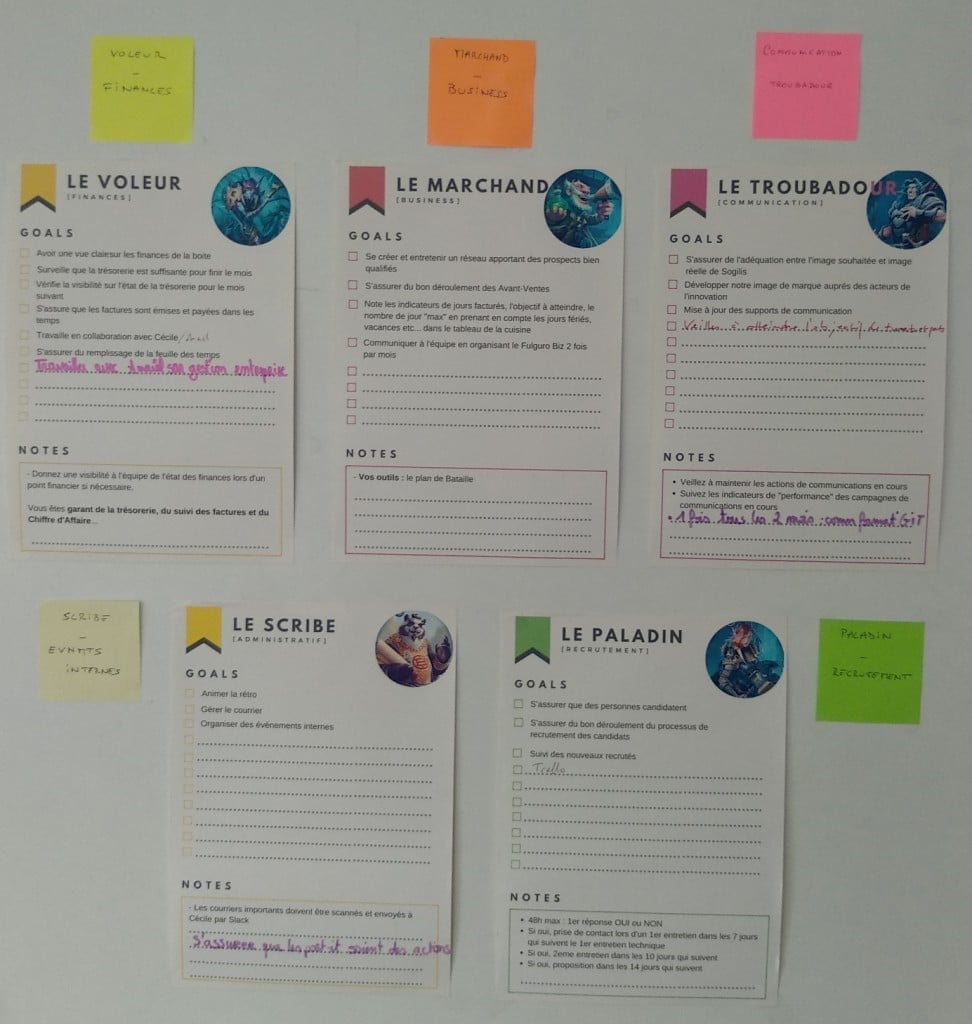And if tomorrow a pillar of your team decided to leave? Would it still be able to function as well? Who would take over their activities? A situation certainly difficult but not insurmountable and above all, one that can be prevented as Augustin Richard, a doctor in neuroscience and research engineer at Sogilis, explains.
Sogilis is a software development company born in Grenoble in 2008, its mission is to "develop tailor-made applications that tend towards zero defects, and to create 'sustainable' software that costs less to maintain and enhance."
Its operation is guided by three pillars:
- Excite the customers: "Satisfying the customer is not enough, we must surprise them, bring them even more value, excite them."
- Enjoyment: Ensure that each member of the team flourishes daily and is enthusiastic and happy to come to work. Employees are free in several areas, particularly regarding their strategies and development methods.
- Profitability: Employees are tasked with making money to pay salaries and contribute to the company's fixed costs.
The idea is not to replicate what is often done in the software engineering sector, which is to hire engineers who are then merely executors. The teams build their offers and consequently choose the projects they want to work on. - Laurent Mangue, CEO & Partner at Sogilis
It is based on these pillars that a member of the Grenoble team chose to launch a branch in Lyon.
The "Bus Factor = 1" Problem
At its inception, it was a manager and five collaborators, responsible for finding their missions and developing their business. The manager who launched the branch naturally took the lead on the business, but when some time later he decides to seize a new opportunity and leave his team, it's a bit of a panic: "Who will take care of the business?" "But wait, how does the administrative work?" A very difficult period follows, activity decreases, there is no more prospecting. The team, lacking experience, has to roll up its sleeves and find solutions.
Countering the "Bus factor = 1" by implementing a system of rotating roles
The Bus Factor (or Truck Factor) represents the number of people "who need to be run over by a bus" for your organization to be in danger. It is a factor that highlights the risk associated with the lack of sharing of information and skills within a team.
In the case of Sogilis Lyon, this factor was 1: it was enough for the manager to leave to endanger the structure.
But how to avoid falling into the same trap? This is the question that Augustin and the other team members had to address to save their business.
Two objectives guided their thinking:
- Avoid a Bus factor = 1, i.e., when a person leaves the team or cannot perform their function, the health of the organization is not endangered.
- Continue to apply a cherished principle: the person responsible for an action is not obliged to carry out this action themselves.
Thus, they identified and created 5 roles necessary for the functioning of the structure in addition to their initial roles as developers or ergonomists. Passionate about gamification and board games, they chose to draw inspiration from the heroic-fantasy universe to name them:
- The Paladin, in charge of recruitment
- The Merchant, for business
- The Troubadour handles communication
- The Thief, in charge of finances
- The Scribe takes care of all administrative matters
This is a good start to counter the departure of their manager, but creating roles is not enough. If Jean is always the Paladin, the day he is sick or on vacation, the problem remains the same. It is therefore necessary for everyone (or at least a few others) to take ownership of each role so that they are always filled.

Based on this realization, they chose to make these roles rotating. Thus, they reduce the risk and allow everyone to grow in cross-cutting subjects. Moreover, no one gets "stuck" on a subject they don't particularly like for too long, and all roles are continuously filled.
Even if 2 or 3 of us leave at once, the company continues to run - Laurent Mangue, CEO & Partner at Sogilis
Rotating roles on a daily basis: how does it work?
Every month, each team member takes on a new role. Thanks to the kanban on the wall, we see who has which role and what actions they have to take for the month. The principle of "the person responsible is not obliged to carry out this action themselves" is still in place, so if a team member cannot perform the actions assigned to their role, they can delegate them to more available and willing persons. At the end of the month, everyone meets to hold a retrospective, each shares their successes, failures, and collectively determine how to do things differently, if necessary, the following month.
And when you love or hate your role?
It may happen that a person wants to keep their role longer. In this case, it is up to the team to collectively determine if this is relevant. It has only happened once so far when a troubadour wanted to keep his role longer to finalize actions he had initiated. From this experience emerged the possibility of keeping one's role for two consecutive months. And when you don't enjoy your role? This question that we had in mind has a rather simple answer: the person responsible for a role is not necessarily the one who does it, so they can choose to ask others for help, work in pairs, or simply ask someone else to do certain tasks.
When there are 5 roles for 5 people, it's easy, but what about when there are more?
When the roles were created, there were 5 people on the team, today there are 9, and it still works. Indeed, every month, not everyone is required to hold a role. As a reminder, being responsible for a role does not mean being responsible for all the tasks that fall under it, so when you are neither the Paladin nor the Troubadour, you can still end up conducting recruitment interviews or writing articles for the Sogilis blog. The workload inherent in each role can thus be distributed among team members according to their availability.
With the implementation of this system, a new challenge has arisen: how to ensure that each role is well-filled? Indeed, if normally everyone is the "owner" of their subject, in times of rush or sometimes simply demotivation, it is not easy to focus on your daily work and your current role, there may be oversights: "Oh well, I didn't do anything for my role this month." To address this shortfall, a sixth role is therefore being tested, that of the Page, whose mission is to ensure that everyone carries out the tasks they have committed to. We hope to learn more soon.
An adventure that inspires us
By overcoming this crisis, the Sogilis Lyon team managed to convert its dependence on a key person into collective autonomy. Its activity was able to grow again, but above all, its members grew thanks to better organization and a better understanding of the company. We wondered about the complexity of the structure, but this does not seem to be felt by the employees.
As you read these lines, Augustin, whom we interviewed, has embarked on a new adventure. Driven by his experience at Sogilis, rich in maturity and confidence, he has ventured into entrepreneurship, congratulations Augustin!




